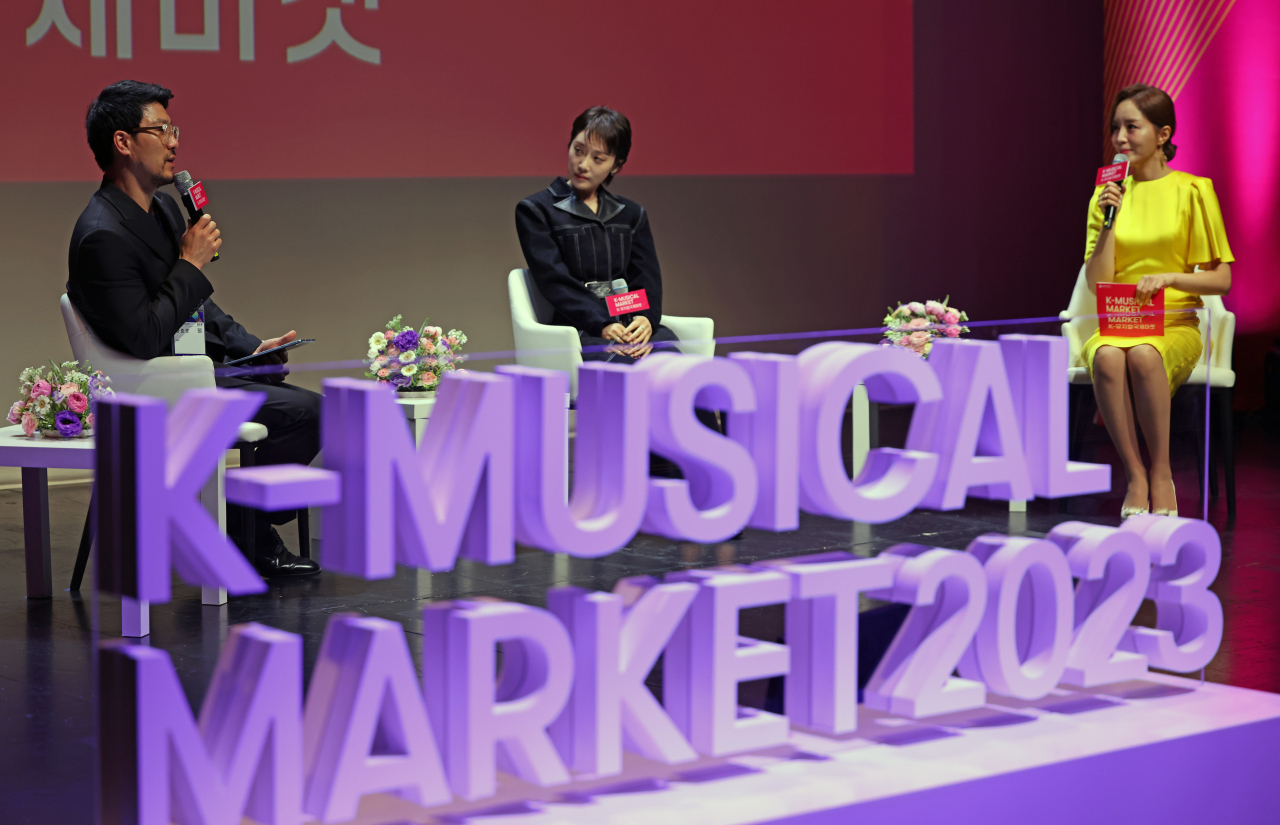[Herald Interview] Young Chinese interested in musicals starring Korean idols
By Park Ga-youngPublished : July 11, 2023 - 10:41

K-Musical Market was launched in 2021 with the support of the Ministry of Culture, Sports and Tourism and the Korea Arts Management Service to promote Korean original musicals internationally.
The Korean government's hope is that Korean musicals might replicate the achievements of K-pop, movies and dramas. And that hope is not groundless. Musicals account for 75 percent of ticket revenue in the country's performing arts industry and the musical scene is burgeoning with countless big and small musical productions that are introduced not only in South Korea but, in recent years, also abroad.
Furthermore, the resilience of South Korea's musical industry during the COVID-19 pandemic boosted global interest in the local market, according to several overseas experts including Sue Frost, partner and producer at Junkyard Dog Productions, who participated in K-Musical Market.
In addition to Frost, music theater experts from Japan and China each introduced their unique markets and discussed the potential of Korean musicals outside the country.

Young Chinese interested in musicals starring Korean idols
Chinese audiences' familiarity with Korean culture has translated into a heightened interest in Korean musicals, according to Wei Jiayi, the CEO of Shanghai Haoxi Information and Tech Co.
“Chinese audiences are familiar with Korean culture and have a lot of knowledge about Korea through K-dramas and movies. As a result, they have developed a keen interest in musicals from Korea,” Wei said in a recent email interview.
According to Wei, Korean musicals began entering the Chinese market in 2016, when Korean productions like "Jekyll and Hyde" and "My Bucket List" gained popularity, with around 20 to 30 Korean works being received well.
“Korea produces musicals on various themes and also imports a significant number of licensed productions from various countries. Many Korean musicals are based on popular films. Additionally, young Chinese people, who are fans of Korean idols, show a lot of interest in musicals featuring Korean idols," he noted.
Currently, China is promoting performances by purchasing licenses rather than heavily modifying them, aiming to stay true to the original works, similar to the Korean musical market 10 to 20 years ago, he explained.
“I consider Korea to have a high level of singers, music and actors, and Korean musicals cover global themes. Therefore, I believe we need to study the Korean market. China currently doesn't have as many talented musical professionals as Korea, and there is a greater need for development in production and staff rather than actors,” Wei said.
Covering diverse themes is important because Chinese audiences are becoming more discerning.
"They have developed a clearer understanding of their preferences and tend to avoid watching productions that are too old, even if they are popular on Broadway,” he noted.
Wei said that the trend in China is to produce either very large-scale or very small-scale productions: either big productions that cost up to 10 million yuan ($1.3 million) like “The Phantom of the Opera” or small-scale performances for audiences of around 100 people.
Small theater musicals have gained popularity, especially in Shanghai, after the pandemic and lifting of China's "zero-COVID" policies, according to Wei.
In terms of the audience, he said there is an increase in the number of people who watch the same production multiple times and that women in their mid-20s constitute the majority of the audience. “We are making efforts to produce works that cater to these audience trends,” he said.




















